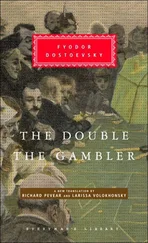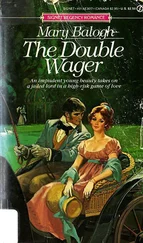“You didn’t take those, then. They must be ancient.”
“Not ancient. But old.”
“Very.” He gazed for a moment into the chemical bath and then added, “That’s the World’s Fair. Nineteen sixty-four. Queens. That globe thing is still standing, you know. It’s by Shea Stadium.”
“Right.” She kept her voice as flat as she could without being obviously rude. She hoped she merely sounded busy. Preoccupied. Focused.
“Who took them?”
“Old fellow. Recently passed away.”
“He sure didn’t take very good care of his shit.”
“No,” agreed Laurel, “he didn’t.”
“Too bad,” he said. “He was good.”
“Yup.”
“I take mostly metal, you know?”
She didn’t, but she nodded. She wondered if she remained silent whether he would continue to chatter. She worried that he was going to insist that she look at his work.
“Yeah, cars and bikes and close-ups of chain link. That sort of thing.”
Again she bobbed her head. A small motion, barely perceptible.
“Sometimes when I tell people I take mostly metal, they think I mean rock shit. Bands. You know, as in heavy metal?”
She sighed, but this was a reflex, not commiseration. She was going to have to be rude. Or, at least, cold. She made a big production of staring at a strip of negatives dangling from a wire behind her, as if he were completely invisible, and when she didn’t say anything more he muttered importantly, “Man, I got a lot to do. Tons. Aloha.”
“Hang in there,” she said, a conversational bone that she tossed him impulsively, and much to her relief he returned to his own prints. She worked for another two hours, long after he’d left, staying until the darkroom closed for the night. She watched as not one but two presidents appeared in the shallow tubs (Lyndon Johnson in a big hat and a bolo tie was the other), as well as an actress she couldn’t quite place from a musical she didn’t know, a flashy jazz drummer smoking a cigarette, a line of hair-salon hair dryers-the helmets resembled chamber pots with wide accordion hoses attached-a very young Jesse Jackson beside a woman she believed was Coretta Scott King, a character she might have guessed was Muddy Waters (but could have been anyone), cars with fins, a lava lamp, Bob Dylan, an elderly woman she presumed was a writer, saxophones (three), a vegetable stand somewhere near Manhattan’s Fourteenth Street, the arch at Washington Square, the very tip of the Chrysler Building, a half-dozen more photos from that 1964 World’s Fair, and-from a much newer strip of negatives taken with a different camera-the dirt road she detested in Vermont. In one there was that young woman on a mountain bike in the distance. Again, as with the distressed image Bobbie had carried with him that she had first seen in the box Katherine had brought to her office, the girl was too far away for Laurel to distinguish the details of her face. But she was tall and lanky, and certainly the bicycle frame resembled her beaten-up Trek.
And, sure enough, there were also three negatives from a large-format camera of the curve of the horseshoe-shaped driveway that looped from the shore road in East Egg to the Buchanan-Marshfield estate. In them, Laurel could see a car parked beside the front steps, and though she knew little about automobiles, she could tell it was a Ford Mustang. A white body, a black hardtop. It was, she was quite certain, from the 1960s.
K ATHERINE MAGUIRE turned her face up toward the mid-morning September sun, eyes closed, as she walked with a city attorney named Chris Fricke down the brick road that had anchored the Burlington pedestrian shopping concourse for decades. She was listening to this lawyer carefully, but she was also savoring the warmth on her eyelids.
“The attorney’s firm is in Manhattan, but he actually has a place up in Underhill-a second home, not an office. So he knows a little about BEDS,” Chris was telling her, the woman’s heels clacking on the bricks underneath every third or fourth syllable. Chris had been one of the city attorneys who assisted BEDS for six years now, almost since the day she had passed the bar and started working for Burlington. She was a little older than the BEDS executive-Chris was in her mid-fifties, Katherine guessed-and genuinely inspiring: She hadn’t even started law school until the younger of her two sons had started high school. Like most of the City Hall minions, she was energetic, determined, and absolutely confident, despite all the evidence to the contrary, that what she did made a difference in the world. She actually volunteered time at the shelter, which was more than most of the attorneys who worked with BEDS ever did. She had made an effort to get a sense of just how rotten it was on the streets and what the homeless population really needed, and thus had won Katherine’s loyalty as well as her respect.
“He saw the ad we placed in the newspaper?” Katherine asked her.
“Or his client did. Either way, he heard about what we found and he thinks the photos might belong to his client. He said she’s an older woman, lives way out on Long Island.”
“And he wants us to turn them over to him?”
“You sound disappointed,” the lawyer said.
“Well, I am. I wanted to make sure they didn’t belong to someone because that’s the right thing to do and because I wanted to cover our bases. But of course I want BEDS to have them. I honestly never thought a real owner would ever show up.”
“We don’t know for sure this is a real owner. I described the stuff that was in the box, and she could be. They could be pictures of her house, and she could be one of the kids in the snapshot.”
“You said this is an older woman. How old?”
“Mid-eighties. Old enough to match the girl in that one picture. But she’s no crumbly,” said Chris. “She may be well into her dotage, but it sounds like she is one very tough old bird. Still healthy, still with it.”
“Did the lawyer say why she wants the photos?”
“Because she’s in some, I guess. Or her house is. And she’s an art collector, and some time ago some of her photos disappeared. Some negatives, too. So she wants us to turn over the whole kit and caboodle. And she certainly doesn’t want Laurel to print anything. She wants us to send everything to the lawyer so she can recover the images that she says are hers.”
“Is she claiming to be any relation to Bobbie?”
“Just the opposite. Insists she’s no relation. Says she did have a brother, but he died some time ago. She and her lawyer aren’t sure where Bobbie got the snapshots of her family or her house or the prints that were part of her collection. But she feels violated, and she wants the images back.”
Katherine stopped where she was and turned from the sun to the attorney. “Do we have to do that?” She realized that she sounded petulant, and she didn’t like that tone in her voice. But it had been a reflex.
“Not necessarily. We need to examine this a little more closely. Here’s the irony: If this woman were related to Bobbie Crocker, then she might have a right to the photos as the sole surviving member of his family. But because she isn’t related to him, it’s much more difficult for her to claim ownership. Just because she’s in them doesn’t mean she has a right to them.”
Katherine felt a little flushed and decided it wasn’t just from the sun. “Look, I want Bobbie to have an art show. He deserved that, you know. But we denied it to him when he was alive because we didn’t take him seriously. At least I didn’t.”
“You really feel bad about that, don’t you?”
“A little, yes. But there are other issues, too: First of all, those photos are great PR for the people we serve. They show that a person who did something extraordinary with his life, who had met important people, could also wind up homeless. Second-and maybe this isn’t second at all-I’m hoping that the collection might be worth serious money for BEDS, if we can sell the show as a fund-raiser.”
Читать дальше












